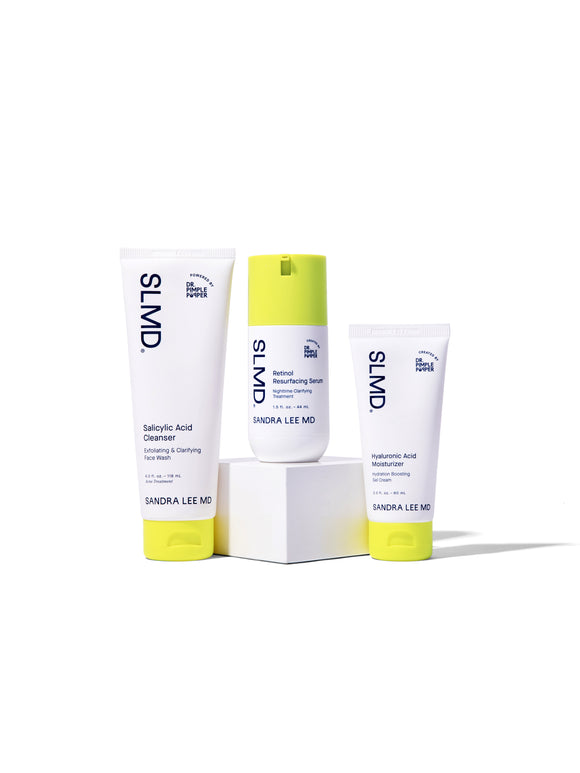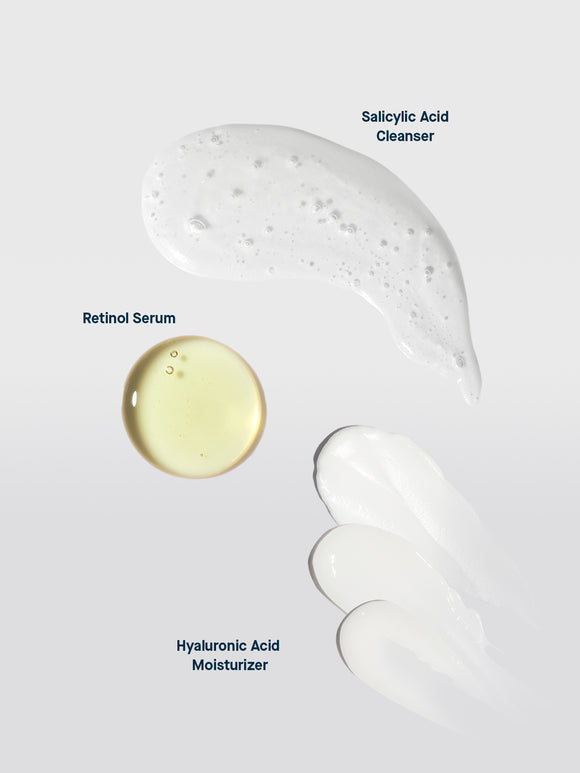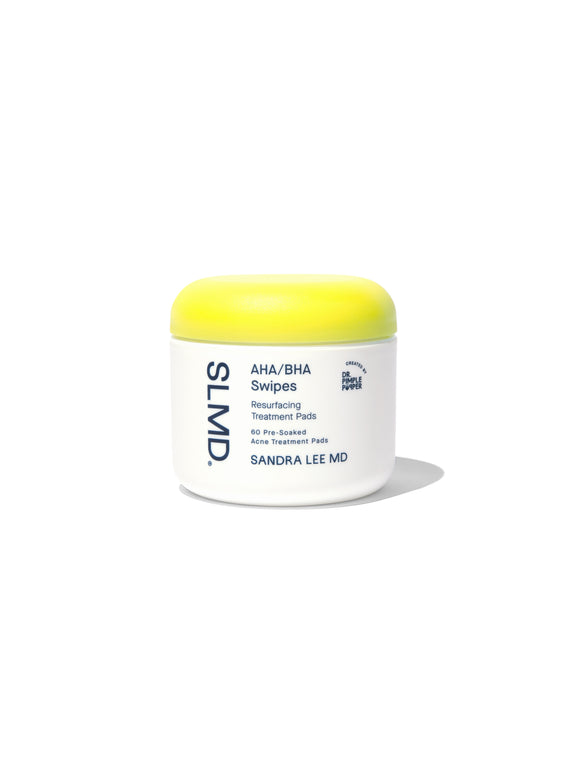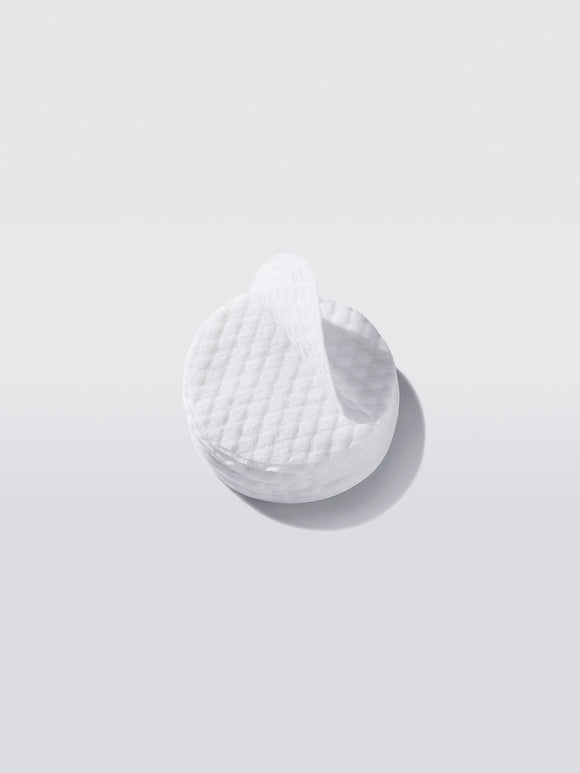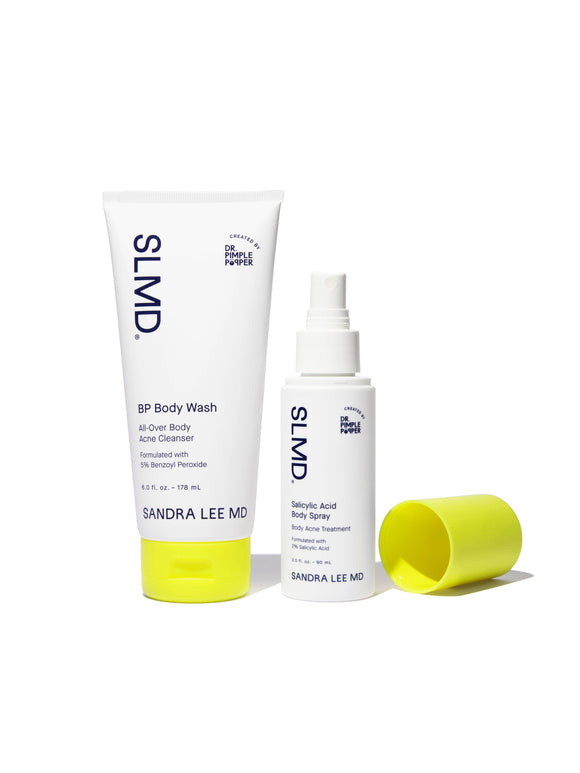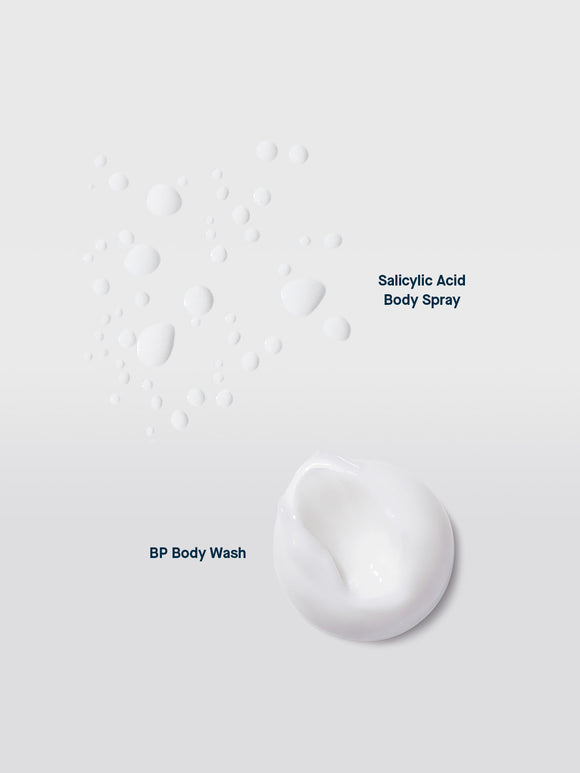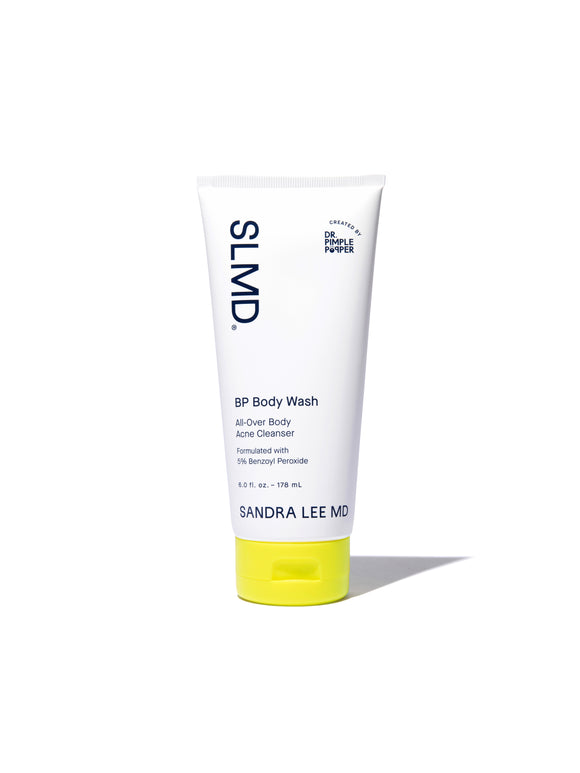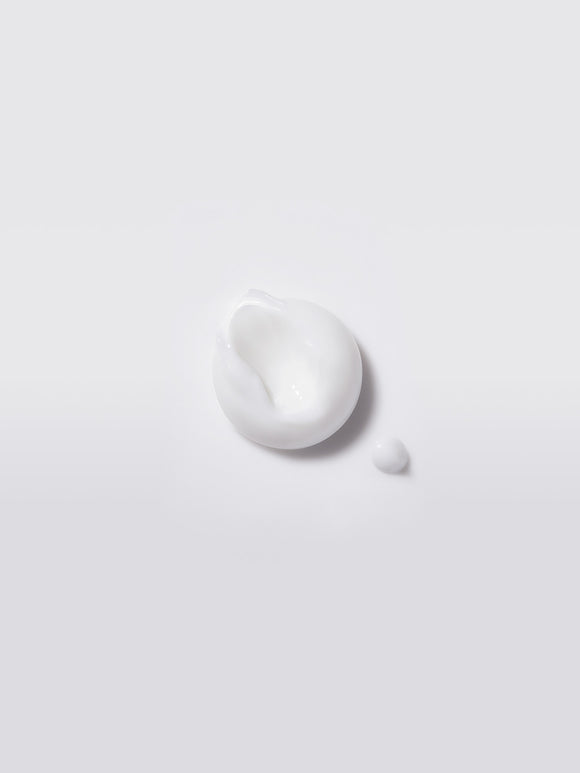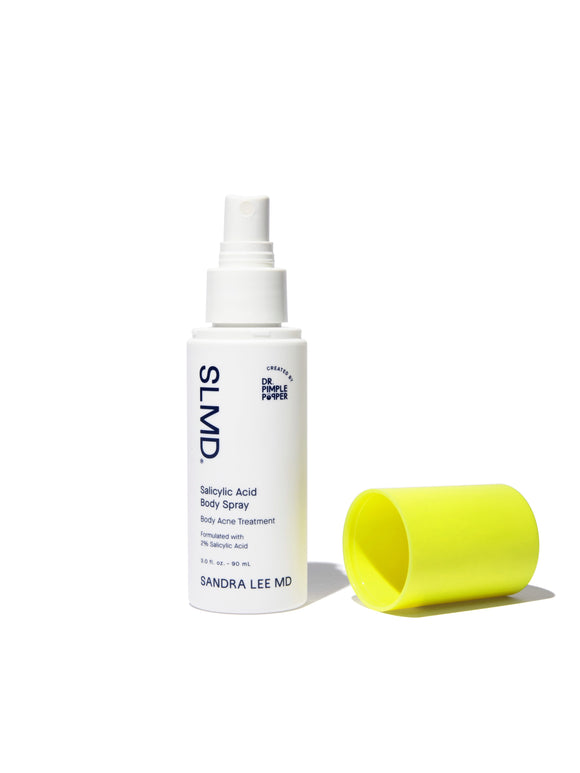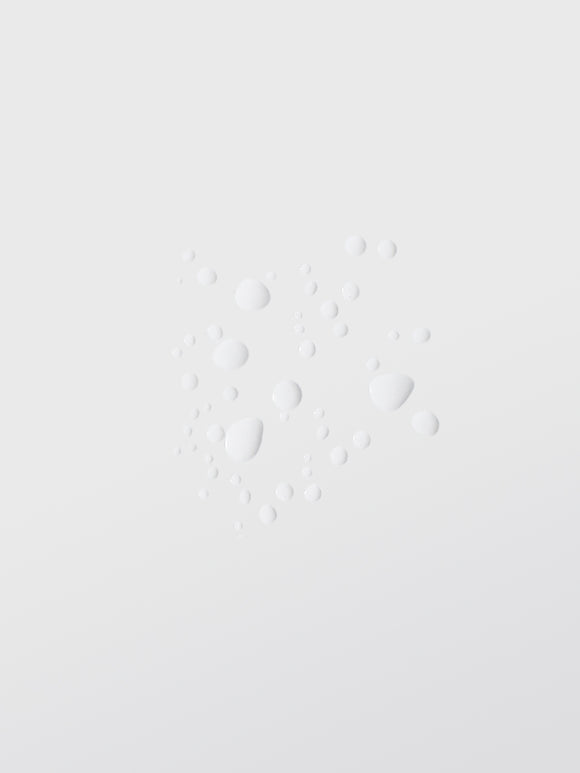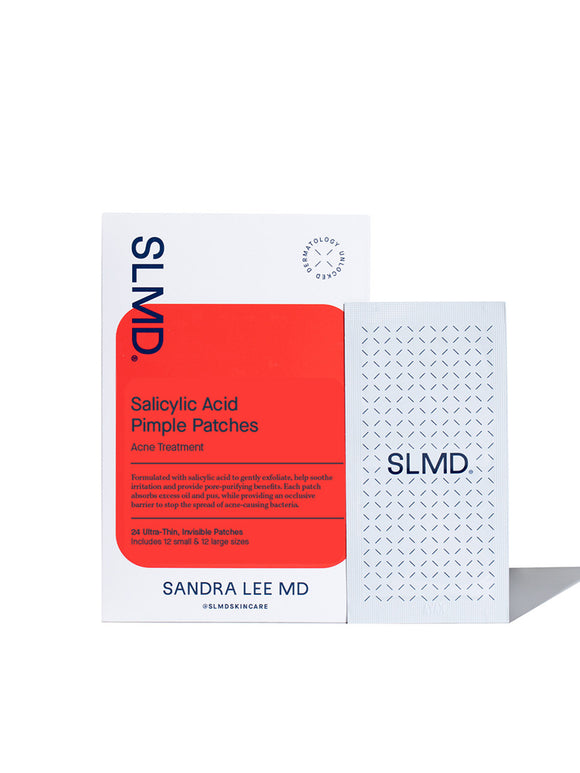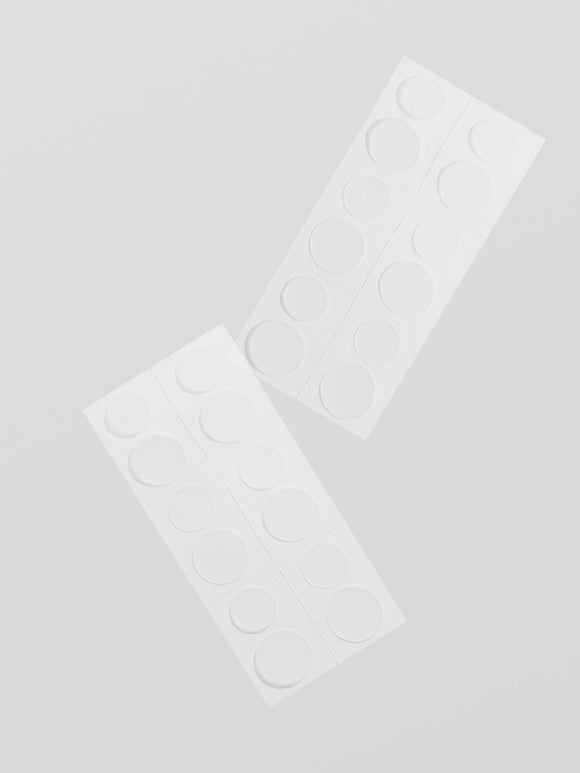
Diet and Acne: Do Greasy Foods, Chocolate, and Dairy Cause Breakouts?
Straight talk about what the latest research shows...from your favorite acne expert, Dr. Pimple Popper.
Published:
3 minute read
Affecting millions every year, acne is the most widespread skin condition — yet it remains a mystery for many people. Even dermatologists and researchers are still exploring the complex biological mechanisms behind it.
One of the most debated topics is whether greasy foods like pizza, sugary sodas, or dairy cause acne. To clear up the confusion, we consulted dermatologist and SLMD Skincare Founder, Sandra Lee, MD (aka Dr. Pimple Popper), for expert insights into the connection between diet and acne.
Article Quick Links
Does greasy food like pizza cause acne?
According to Dr. Lee, the answer is…not exactly. “People have this misconception that eating greasy food leads to oily skin and acne,” she says, “but that’s not how our skin works.”
Whether or not you have oily skin depends upon your pores and the sebaceous glands inside. The size and activity level of these oil-producing glands are primarily influenced by your genetics and hormones.
It’s important to note that having oily skin doesn’t automatically mean you’ll develop acne. Although oily skin and acne frequently occur together — since excess oil and dead skin can end up clogging pores — it’s entirely possible to have oily skin without experiencing breakouts.
Does sugar contribute to acne breakouts?
Research indicates that diets high in refined carbohydrates, such as cereal, white bread, white rice, sugar, and corn syrup, can increase the risk of developing acne. While further studies are needed, Dr. Lee points out that refined carbs cause blood sugar levels to spike, leading to higher insulin production. Those elevated insulin levels stimulate the release of androgens, hormones that increase sebum production. More sebum often translates to more acne, making it important to manage your intake of these foods.
Can dairy products lead to acne?
While consuming dairy foods doesn’t directly cause acne, research suggests that dairy can contribute to skin issues. Dr. Lee points out that hormones in milk, including both naturally occurring and added growth hormones, can trigger inflammation. This inflammation may make the skin more prone to breakouts, so it makes sense to practice moderation in dairy consumption to potentially reduce acne flare-ups.
Does eating chocolate cause acne?
The relationship between chocolate and acne is still debated, says Dr. Lee. Some studies suggest that consuming chocolate, particularly varieties high in sugar and dairy, can exacerbate acne if you're prone to breakouts. According to research, the sugar and fat content in milk chocolate can increase sebum production and trigger inflammation, both of which can contribute to acne formation. In contrast, dark chocolate, with its higher cocoa content and lower sugar, may have less of an impact but can still cause issues due to its cocoa butter content.
Can you still eat junk food if you have acne?
“I’m a big believer in ‘everything in moderation,’” says Dr. Lee. “If you’ve got acne and want to enjoy pizza or other junk foods, do so occasionally and balance it with healthier options.” She emphasizes that if you notice breakouts after eating specific foods, it might be wise to limit those foods in your diet and explore potential triggers further. Talk to your doctor if you suspect you have food allergies or sensitivities that could be contributing to your skin issues.
Dr. Pimple Popper's Acne Treatment Picks
Dr. Pimple Popper’s tips for effective acne management
The best way to keep acne breakouts under control, Dr. Lee shares, is to maintain a consistent skincare routine. Here are some of her essential tactics:
#1 Use key ingredients
- Salicylic acid: Unclogs pores and reduces inflammation.
- Benzoyl peroxide: Kills acne-causing bacteria and controls oil.
- Retinol: Promotes cell turnover and prevents clogged pores.
#2 Establish a routine
- Cleanse daily: Use a gentle cleanser to remove dirt and oil.
- Moisturize: Keeps skin hydrated and prevents overproduction of oil.
- Protect: Use sunscreen to prevent damage and hyperpigmentation.
#3 Seek professional help
- Consult a dermatologist: For persistent or severe acne, consider professional treatments.
- Investigate options: Treatments like chemical peels and laser therapy can help manage acne effectively.

Dr. Lee's Last Word
Patients are always asking me if their diet contributes to their acne. The fact is, dermatologists suspect that certain foods probably affect your skin health, but the research is ongoing. To a certain extent, the old expression ‘You are what you eat’ is a smart philosophy to live by, whether you have acne or not. Healthier food definitely keeps your body — including your largest organ — healthier, too.





